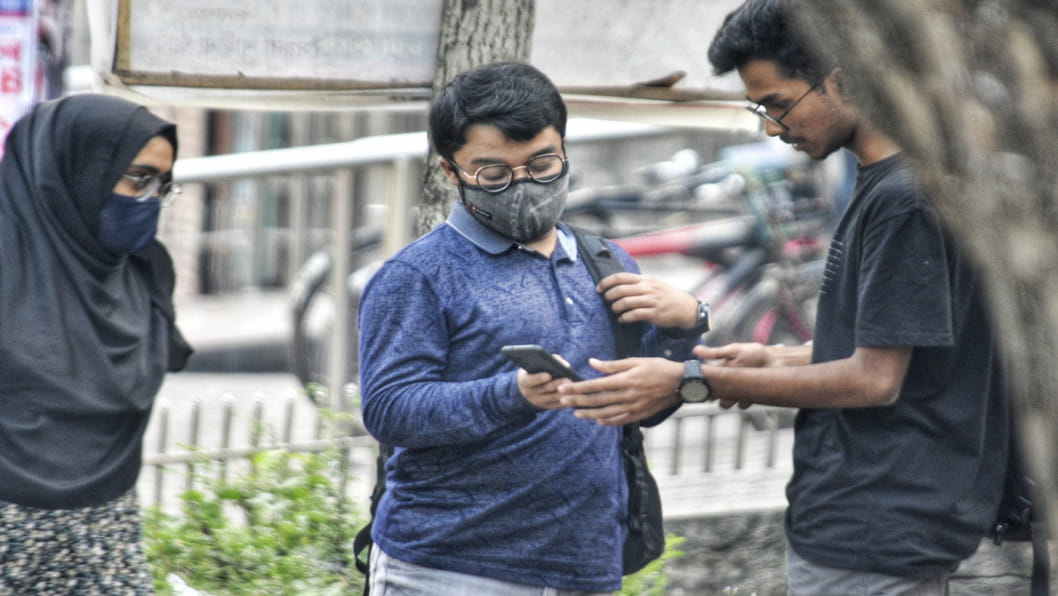Mobile operators call for restructuring taxation

Telecom operators and experts in Bangladesh yesterday demanded restructuring taxation in the sector, arguing that the rates in place are not only limiting the sector's growth, but also potentially hindering the implementation of "Smart Bangladesh".
As such, they demanded lowering the corporate tax rate for listed and non-listed companies in the sector to 20 percent and 27.5 percent from 40 percent and 45 percent respectively.
Additionally, they urged for reducing the minimum turnover tax. At present, mobile network operators in the country face a minimum turnover tax of 2 per cent while other industries pay only 0.6 per cent.
Lt Col (retd) Mohammad Zulfikar, secretary general of The Association of Mobile Telecom Operators in Bangladesh (AMTOB), said a significant portion of the revenue collected from customers is allocated towards subscriber taxes and other duties.
He was speaking at a roundtable, styled "Telecom Taxation for Smart Bangladesh", jointly organised by AMTOB and the Telecom and Technology Reporters' Network Bangladesh (TRNB) at Pan Pacific Sonargaon Dhaka.
Out of every Tk 100 collected from a subscriber, telecom operators have to pay Tk 39 to the National Board of Revenue as value added tax, supplementary duty, SIM tax, customs duty, corporate taxes, etc.
Zulfikar also highlighted the challenges posed by revenue sharing, which is roughly Tk 18 out of every Tk 100, with ecosystem players such as the International Internet Gateway, International Gateway, tower companies, and so on.
Besides, another Tk 15 from every Tk 100 has to be paid for annual license fees, annual spectrum fees, and revenue sharing with Bangladesh Telecommunication Regulatory Commission (BTRC).
Operational expenses further strain financial resources, with Tk 26 of every Tk 100 collected being allocated for covering costs related to network operations, marketing, administration, human resources, depreciation and finance.
As such, only Tk 2 is left for the operator out of each Tk 100 collected from customers.
Such taxation and fee structures hinder their ability to invest in network expansion, technology upgrades and service innovation, which are essential for meeting the growing demands of consumers and the digital economy, Zulfikar said.
The telecom sector's contribution to government revenue is 5 percent, making the tax regime of the local telecom industry the most imbalanced compared to that of other countries, he added.
TIM Nurul Kabir, a telecom expert, said foreign investment in the sector is declining due to high taxation.
Questioning why the same taxation system is applied for both cigarette and telecommunication companies, he said while cigarettes negatively impact health and inflate healthcare costs, the telecom industry drives GDP growth.
He suggested that removing value added taxes on internet services could be a significant milestone for Bangladesh's development over the next three to five years.
Zunaid Ahmed Palak, the state minister for telecom and ICT, said the National Board of Revenue should be modernised to enable the telecom sector to contribute more to the country's GDP.
"Without an intelligent taxation policy, the desired growth of the telecom sector will be hindered. The telecom sector should evolve into a smart industry," he added.
Md Mohiuddin Ahmed, chairman of the BTRC, said the entire ecosystem of telecom industry should be made simpler to expedite the country's journey towards "Smart Bangladesh".
So, reviewing the taxes on telecom operators is a must, he added.
Yasir Azman, chief executive officer of Grameenphone, said telecom operators would be better positioned to contribute to the development of "Smart Bangladesh" if their tax burden is alleviated.
And in the long run, this would enable the government to collect more taxes as well, he added.
Taimur Rahman, chief corporate and regulatory affairs officer at Banglalink; Shahed Alam, chief corporate and regulatory officer at Robi Axiata; Rashed Mehedi, president of the TRNB; and Masuduzzaman Robin, general secretary, also spoke.

 For all latest news, follow The Daily Star's Google News channel.
For all latest news, follow The Daily Star's Google News channel. 



Comments